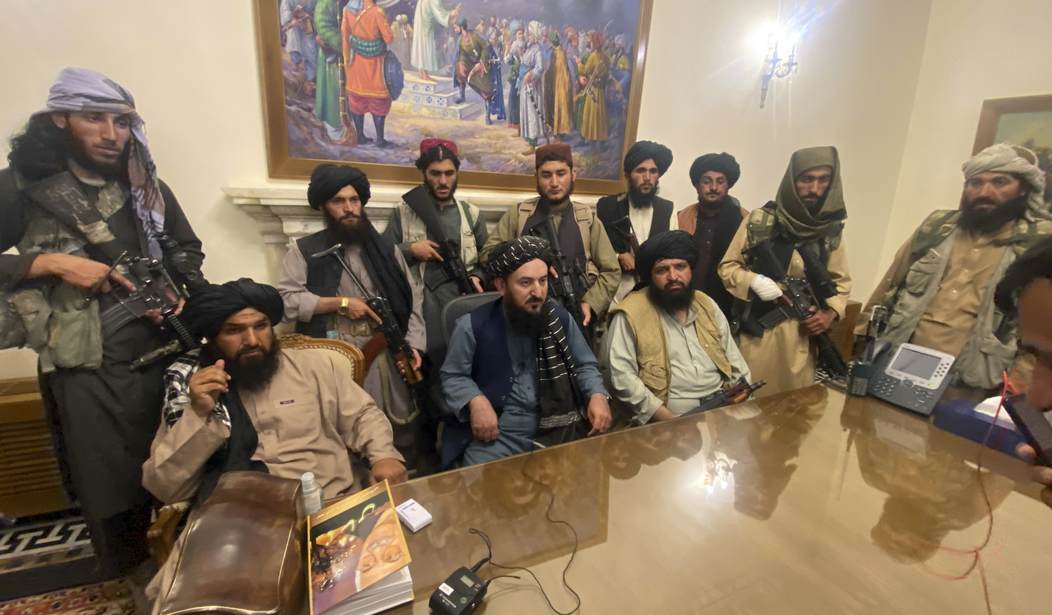The ban on women’s education in Afghanistan by the Taliban continues. The Taliban indefinitely banned girls from taking private university entrance exams. Ziaullah Hashmi, a spokesperson for the Taliban higher education ministry confirmed on Saturday that a letter was sent out to private Afghan universities throughout the country. The letter ordered the universities not to enroll female students for the upcoming spring semester.
Entrance exams will take place at the end of February. If the universities do not enforce the ban, they face legal action.
When the Taliban filled the power vacuum in Afghanistan immediately after the Biden administration’s disastrous withdrawal, they gave lip service to allowing women to continue to work and receive an education. These were lies, of course, because there is no kinder and gentler Taliban, just the same old brutal tyrants they always were. Women have no basic rights. Women in Afghanistan are back to covering themselves in hijabs and full burqas and kept at home, unable to work to support their families or send their daughters to school.
A series of actions have been taken by the Taliban that prove that the bad old days are back, the pre-9/11/01 days. When the war in Afghanistan began after the terror attacks of 9/11/01, women and girls were eventually free to live a more Western style of life. A whole generation of young women grew up this way and now they are restricted as their mothers had been in the past. The Taliban is selling children into marriage. A protest, led by women, marking the anniversary of the U.S. withdrawal from Afghanistan was disbursed by the Taliban using gunfire against the protesters. Even the absurdity of requiring store mannequins to wear face coverings has come to be. A female former Afghan lawmaker was shot and killed in her home earlier this month.
So, when women and girls were denied education, it tracked with all the other restrictions being levied against them. The Taliban have no respect for women and they do not treat them as human beings. They are treated as property, people to be controlled. Women are no longer allowed to work with NGOs and that will restrict services available to women and children. Afghan society is a gender-segregated one.
The Taliban banned the university entrance exams despite two recent visits from U.N. officials who tried to stop such action.
The latest bans have sparked global outcry and demands for urgently reversing them. They also prompted the United Nations to send high-level delegations to Kabul this month to convey international concerns and urge Taliban leaders to ease the restrictions on women.
U.N. humanitarian chief Martin Griffiths traveled to the Afghan capital, Kabul, earlier this week to persuade the Taliban to lift the ban on female aid workers, warning it was undermining humanitarian programs in the war-ravaged country amid a prolonged drought.
Last week, U.N. Deputy Secretary-General Amina Mohammed, the highest-ranking woman official at the world body, led a high-level delegation to Afghanistan and met with senior Taliban officials to promote the rights of women and girls.
She told reporters in New York on Wednesday that the international community’s best leverage to persuade the Taliban to reverse curbs on Afghan women’s rights is the group’s desire for international recognition.
The Taliban has not eased restrictions on women and girls. They excuse the abuse by saying it is in line with Afghan culture and Islamic (Shariah) law. U.N. officials say the ban on female education has kept more than one million girls out of schools. These kinds of restrictions on Afghan citizens prompt donor nations to withhold financial assistance. Economic sanctions remain in place, with exceptions for humanitarian aid. No foreign government recognizes the Taliban as legitimate rulers of the country, specifically due to human rights concerns and their treatment of women.
The education ban does not bode well for the continued existence of private universities.
Mohammed Karim Nasari, spokesman for the private universities union, said last month that dozens of private universities risk closure because of the ban.
Afghanistan has 140 private universities across 24 provinces, with around 200,000 students. Out of those, some 60,000 to 70,000 are women. The universities employ about 25,000 people.
Earlier this month I wrote about Afghan women working around restrictions on educational opportunities by learning online. We’ll see how long that lasts as the Taliban continue to crack down on women and girls.









Join the conversation as a VIP Member